Annual Special: Favourite Books of 2024
+ films, series, and amazing people I encountered this year.
"Books are my kingdom. And here I seek to reign as absolute Lord ."
~ Michel de Montaigne
Hello everyone,
In just the last five days (!), 225 people subscribed to my newsletter, and many of you generously upgraded from the free tier to a paid subscription. I’m truly speechless and deeply grateful for your support this week (and throughout 2024!). A heartfelt thank you and a warm welcome to all the new readers!
Hello friends,
We are creatures who love making lists—they help us bring order to the endless possibilities that surround us. Lists are an essential tool for our memory. When creating a list, what often matters most isn’t necessarily which books make it, but rather which ones are left off—those deemed unworthy of being mentioned.
Just as a great sculptor must chisel away the superfluous to reveal the true form of their creation, we too must carve out what is essential and let go of the rest.
For the past three years, my annual lists of favourite books have focused solely on books and nothing else. This year, however, I’d like to introduce three new sections: people, films and series.
People
The only thing that can change the course of one’s life more profoundly than the books we encounter is the people we meet. This year, I’ve had the privilege of meeting wonderful writers, philosophers, illustrators, and editors who have supported, inspired, and guided me on my reading journey.
‘s amazing monthly Philosophy Discussion Group has taught me more about the ideas of Seneca, Marcus Aurelius, Lucretius, and countless others than I could have learned by reading their works alone. It’s the first reading and discussion group I’ve ever joined, and my only regret is not doing it sooner.’s Substack is proof that the internet can be a beautiful place. His read-alongs of Mantel’s books and Tolstoy’s War and Peace are crafted with such love, passion, and care. In fact, it’s Simon who inspired me to launch my Dante read-along! - I cannot describe how grateful I am to Lisa this year! A wonderful proofreader, researcher and fellow bibliophile. Thank you Lisa enormously for everything you have done this year for me and . You will soon meet Lisa in her words!’s brilliant Instagram is a mix of wonderful book reviews and exceptional drawings. Luana designed the logo of Dante Read-Along and you will see more of her amazing drawings throughout this year. Thank you Luana for being an aesthetic inspiration for the past years!Two Films, One Series and a Documentary
A Hidden Life by Terence Malick
I was so profoundly moved by the sublime yet harrowing beauty of this film that I found myself unable to write a review. I truly felt my heart skip a beat, and it seemed as though my lungs were devoid of oxygen for several minutes after the final credits began to roll. This film is based on a true story of a farmer with the name Franz (played by August Diehl) who refuses to swear allegiance to Nazis because he thinks that his country is on the side of evil.
Franz is religious. He believes that we are responsible for the actions we take in life. His conscience prevents him from joining his compatriots in war. Despite knowing that his refusal will cost him his life, he remains steadfast in his decision.
He, along with his family who supported his fatal decision despite knowing they would be ostracised by their village, and his wife, who understood him even as she faced the reality that the father of her four children would be executed, never tried to change his mind. Franz and his family were unsung heroes of their time.
Watch this film, it will change who you are.
“The growing good of the world is partly dependent on unhistoric acts; and that things are not so ill with you and me as they might have been, is half owing to the number who lived faithfully a hidden life, and rest in unvisited tombs.”
~ George Eliot, Middlemarch
Kazantzakis
‘One day without a clear purpose in mind I took a pen and started writing. This was a crucial moment in my life.
Thoughts, memories of important times, of a girl, the smell of her body, her red lips like two drops of blood. Whatever haunted me had left me now; it was laid on paper unable to escape’
Kazantzakis was nominated for the Nobel Prize in Literature NINE times. NINE! It is unbelievable that they did not award it to him in the end. The man was an absolute genius of the 20th century and stands among my favourite writers such as Borges, Kafka and Nabokov. This film inspired my piece ‘From Homer to Nabokov’.
With its stunning cinematography, this film is an exceptional example of philosophical cinema. I always purchase DVD copies of films I want to keep in my permanent collection, and this one was an obvious choice.
RIPLEY
I clicked on it thinking it is going to be another Netflix thriller. It turned out to be a chef d'oeuvre, every frame of this series is a painting. It is written and produced by the great Steven Zaillian (Oscar Winning Schindler’s List).
I must confess I didn’t read Patricia Highsmith’s books, I didn’t watch the 1990’s movie ‘Talented Mr. Ripley’, so I did not know anything about what Ripley series could be when I clicked to play it. But Italy, beauty, style, Caravaggio - I rewatched this series three times and perhaps will watch three times again in 2025!
Umberto Eco: A Library of the World!
A treasure for a bibliophile! Eco’s kids tell the story of their father’s library. It is magical to see Eco’s catalogue of 30,000 books that span from different language publications of his own books to rare manuscripts on alchemy and mysticism.
If you would like a short introduction watch my video on Eco’s library here or read my piece that was inspired by this documentary here.
Favourite Books of 2024
I. Finding my interior silence.
(The Interior Silence by Sarah Sands; The Magic of Silence by Florian Illies; How to Focus by John Cassian)
The best way to diagnose the state of your mind, whether it is healthy or troubled, is by examining the books that you’ve enjoyed reading.
My mind craved inner peace and focus this year. The pile of books beside me as I write this, though varied in genre and topic, share a common thread—words like “silence,” “inner citadel,” and “focus” figure in their titles.

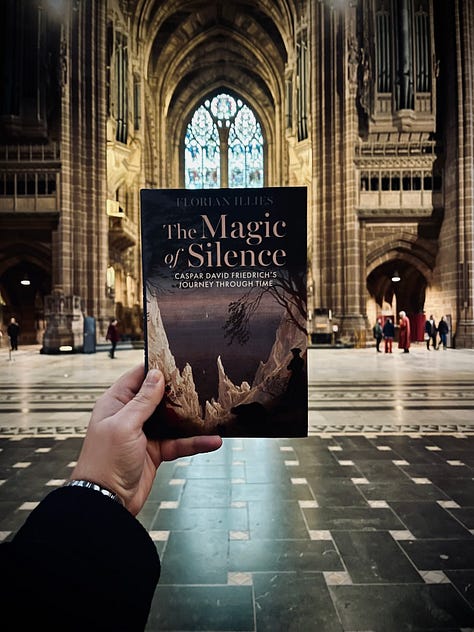
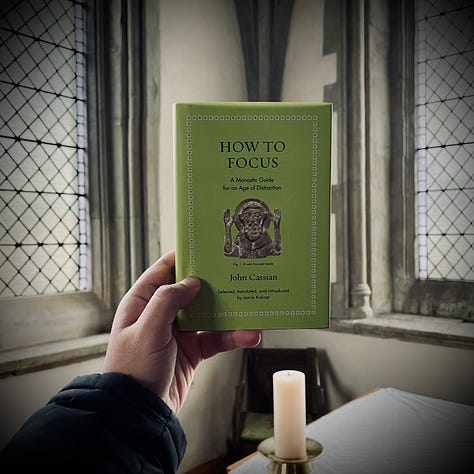
My day revolved around appetite, not prayer.
~ Sarah Sands, former editor of the London Evening Standard
‘The Interior Silence’ by Sarah Sands was a wonderful serendipitous discovery in my local bookshop. Sands was a former editor of the London Evening Standard and Today programme on BBC. Instead of writing an ego-centric memoir of her career as many celebrities do, Sands writes about her travels through monasteries across the world from her native Norfolk to Bhutan and Japan. Her purpose is to learn how to find serenity in a chaotic word. It is a wonderful, well-written and easy read that brought me one step closer to inner-peace.
Monasteries radiate some melancholic silence from themselves. We often feel a sense of melancholy when we reflect upon the sublime. Caspar David Friedrich’s paintings are, perhaps, the only pieces of art (besides poetry) that transfer me immediately to the state of melancholic trance.
Florian Illies’s The Magic of Silence is a biography of Friedrich I long craved for. Most previous biographies are written in a dry, academic, chronological style, offering little insight into why Friedrich matters, why we admire him so deeply, or the magic he embodies. I enjoyed reading Illies’s short vignettes from the great German romantic’s life.
Another serendipitous find was John Cassian’s book on How to Focus. Cassian was a 4th century Christian monk who travelled to monasteries across the Christendom with the aim of finding secret of how to focus in life and remove distractions. The result was a collection of incredibly useful and practical tips on how to develop a super-human focus. (I filmed and edited an entire video about this book which you might find worth watching).

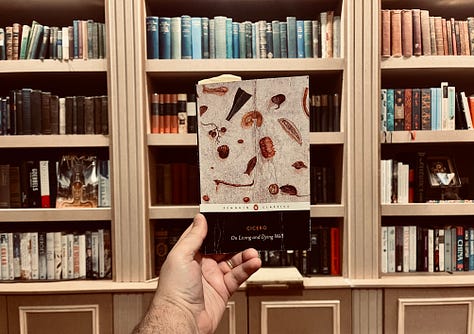
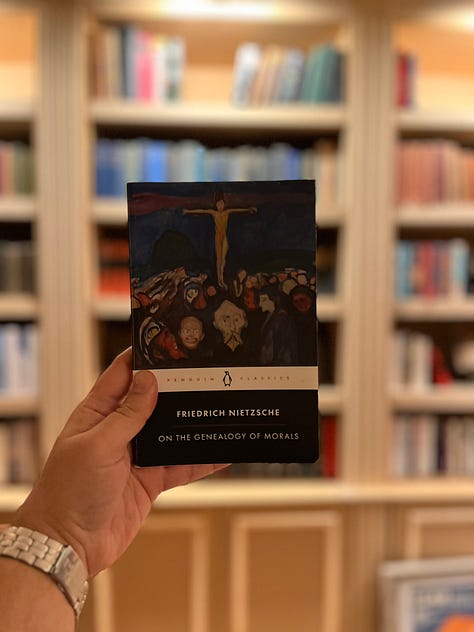
II. Doctors of our souls
(Letters on Ethics by Seneca (Chicago Uni Edition); On Living and Dying Well by Cicero; The Genealogy of Morals by Nietzsche; Nichomachean Ethics by Aristotle)
I cannot describe to you how many joyful hours, days and weeks I spent with Seneca and Cicero this year. They both are doctors of the soul. I used to have the selected Letters from a Stoic by Seneca but this year I invested into buying Chicago Uni Press edition which includes all the Letters but is pricier than the mass paperback. If you would like to have ‘doctor of the soul’ at home, available at all times, this is a book to purchase. (Here are two videos (one and two) I recorded on Seneca’s letters this year)
I am still trying to find an equal translation of Cicero’s works but the selection that was published by Penguin called ‘On Living and Dying Well’ has some amazing pieces by the great Roman orator. I particularly enjoyed his advice in On Friendship on how to make true friends. ‘The true friendship’ - writes Cicero - ‘can only exist between two good humans’. He proceeds by saying that before making friends we should raise our being to the heights, because a friend is not an accomplice in wickedness but a partner in virtue.
In an age where we are encouraged to be harmless and sterile, Nietzsche remains indispensable. If Cicero and Seneca taught me virtues, Nietzsche made me question, in his book The Genealogy of Morals, whether what I consider to be a virtue is right in the first place. I wrote about my impressions here.
I didn’t get a chance to explore the ideas of Aristotle this year at
but his Nichomachean Ethics had a profound influence on me. If Nietzsche challenges the value of the ideas and convictions you hold, Aristotle offers a framework to assign the correct value to everything. had a wonderful read-along of Nicomachean Ethics that’s well worth your attention. Also, you might enjoy my piece, How Alexander the Great Taught Me How to Live, where I explore the possible esoteric knowledge these two great thinkers - Alexander and Aristotle - might have shared.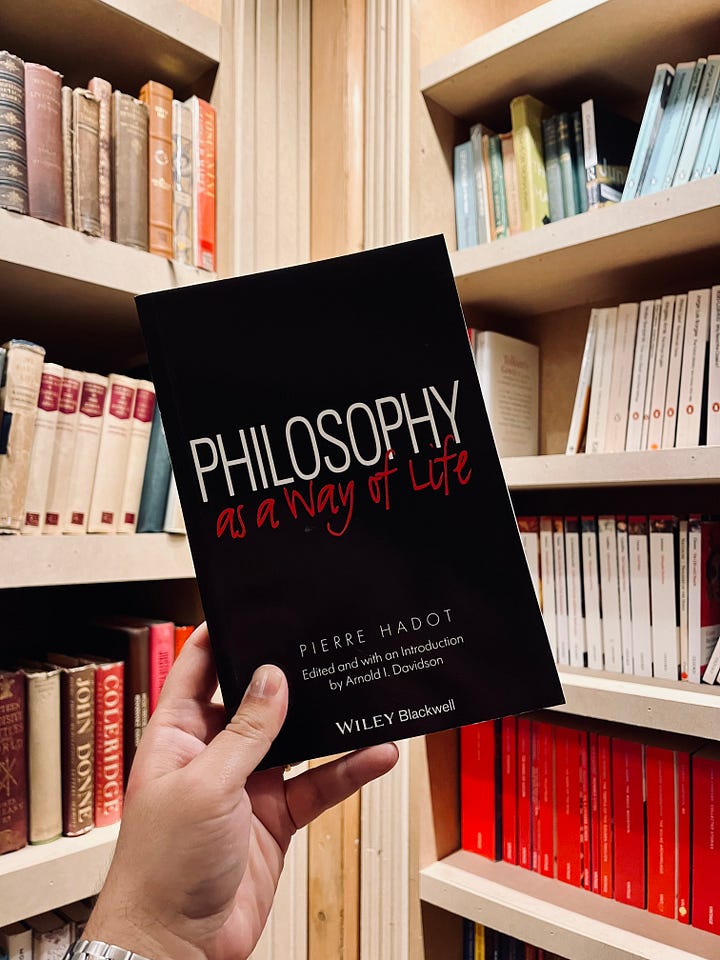
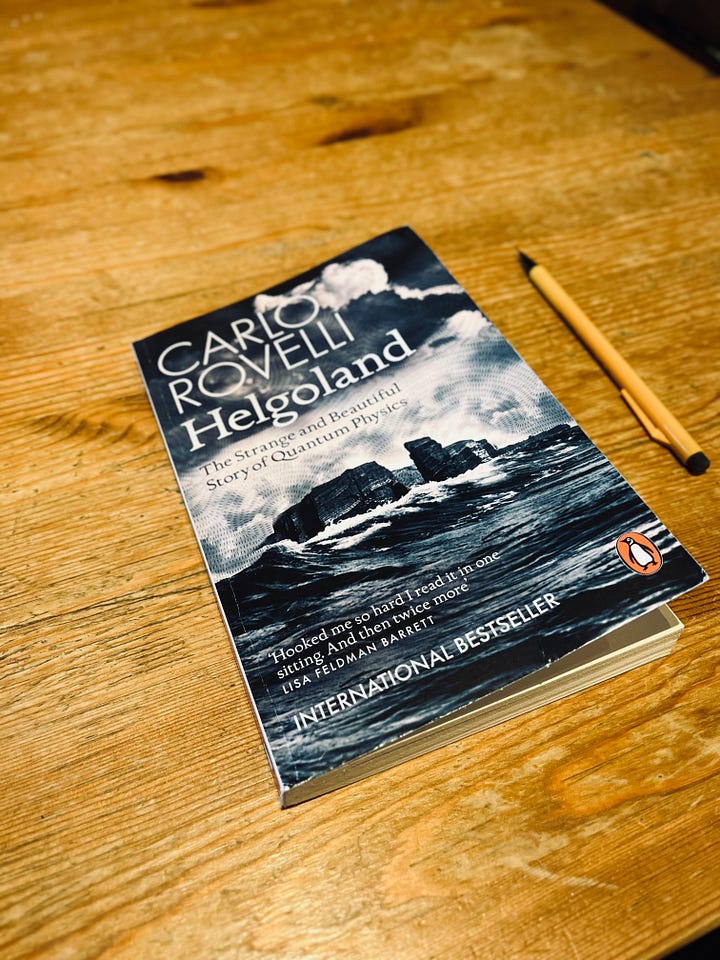


III. ‘To know’ is to act differently
(Don’t Forget to Live by Pierre Hadot; The Notebook by Roland Allen; In Search of Civilisation by John Armstrong; Helgoland by Carlo Rovelli)
Three thinkers are profoundly influencing me at this stage of my life: Marguerite Yourcenar, Edith Hamilton, and Pierre Hadot. While Yourcenar was the focus of last year’s annual special, this year is dedicated to Pierre Hadot1. His work inspired me to launch the Dante Read-Along, starting in January 2025! (Feel free to join whenever you’re reading this—you can catch up and read at your own pace.)
In his brilliant book, Don’t Forget to Live, Hadot explores how literature and art can become powerful sources of philosophical transformation. We are often told Memento Mori (Remember we must die) but rarely reminded of Memento Vivere (Remember to Live!).
One way to learn to ‘know thyself’ in order to ‘Memento Vivere’ is by keeping a journal. I believe that journaling is our modern prayer, the purpose of it is not to change the world, but to change ourselves. Many of you may know that I’ve been keeping a journal for the past 15 years. (I even have a Patreon where I share tips!) But when did our ancestors first begin keeping notebooks? Roland Allen’s book was an absolute delight—I discovered so much about my favourite activity!
One thing (among many) that I have learned from Allen’s book on journaling was that journaling emerges along with civilisation. Journals often act as a third hemisphere of our brain. This December, I visited an exhibition at the Royal Academy of Arts in London on three Renaissance masters (my Patreon podcast about this here) and I was so overwhelmed by the depth, profundity and beauty on display that I instantly started jotting down my thoughts on what I saw. I was trying to understand why do I get breathless when I see beauty and what is beauty in the first place.
A lot of what I wrote in my journal on that day came from one book in particular written by John Armstrong called In Search of Civilisation. Armstrong is a deeper, more profound, yet unfortunately lesser-known version of Alain de Botton. His books explore similar subjects but with greater spiritual and intellectual depth.
Finally, while I’ve read many books on science this year, my true curiosity lies in quantum physics. With my knowledge in this field being incredibly limited, I make an effort not to draw premature conclusions. Carlo Rovelli, who consistently makes an appearance in my annual specials, is one of the best popular thinkers on the subject. His ability to explain the meaning of quanta to a layperson like myself is unmatched. His book Helgoland is a brilliant work that I highly recommend if you’re looking to transform your perspective on the world around you.
As always (and for the last time in 2024!) - confide tibimet!
Sound of the Year Awards | Best Imagined Sound
Recently, I came across the Sound of the Year Awards.
It’s an annual open call that invites anyone to submit sound recordings that sum up the year. There are several categories (such as Best Natural Sound) and prompts to help you contextualise your recordings from 2024. My favourite category, however, has got to be Best Imagined Sound.
This category, which is presented in partnership with the Southbank Centre’s National Poetry Library, asks for submissions that describe or depict sounds. These can be poems, prose, images or conceptual art works.
Previous winners and shortlisted entries include Jorge Zurita, Cateri Muro, Iris Chun-Tzu Chang and James Kearns. This category really leans into poetry and language, which is why I thought you, dear reader, would find it interesting.
The awards are free to enter and submissions are open until 28 February 2025. Here’s the Best Imagined Sound category submission form. Winners will receive a high-quality omni-directional microphone, courtesy of LOM, a minimalistic mount made by Radius and a Bubblebee Industries windkiller. Good luck!

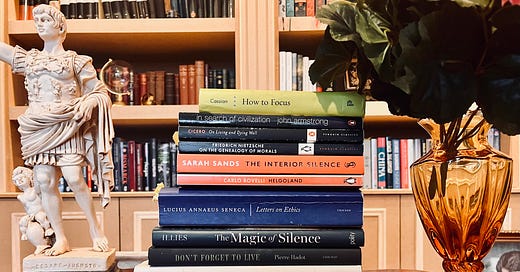


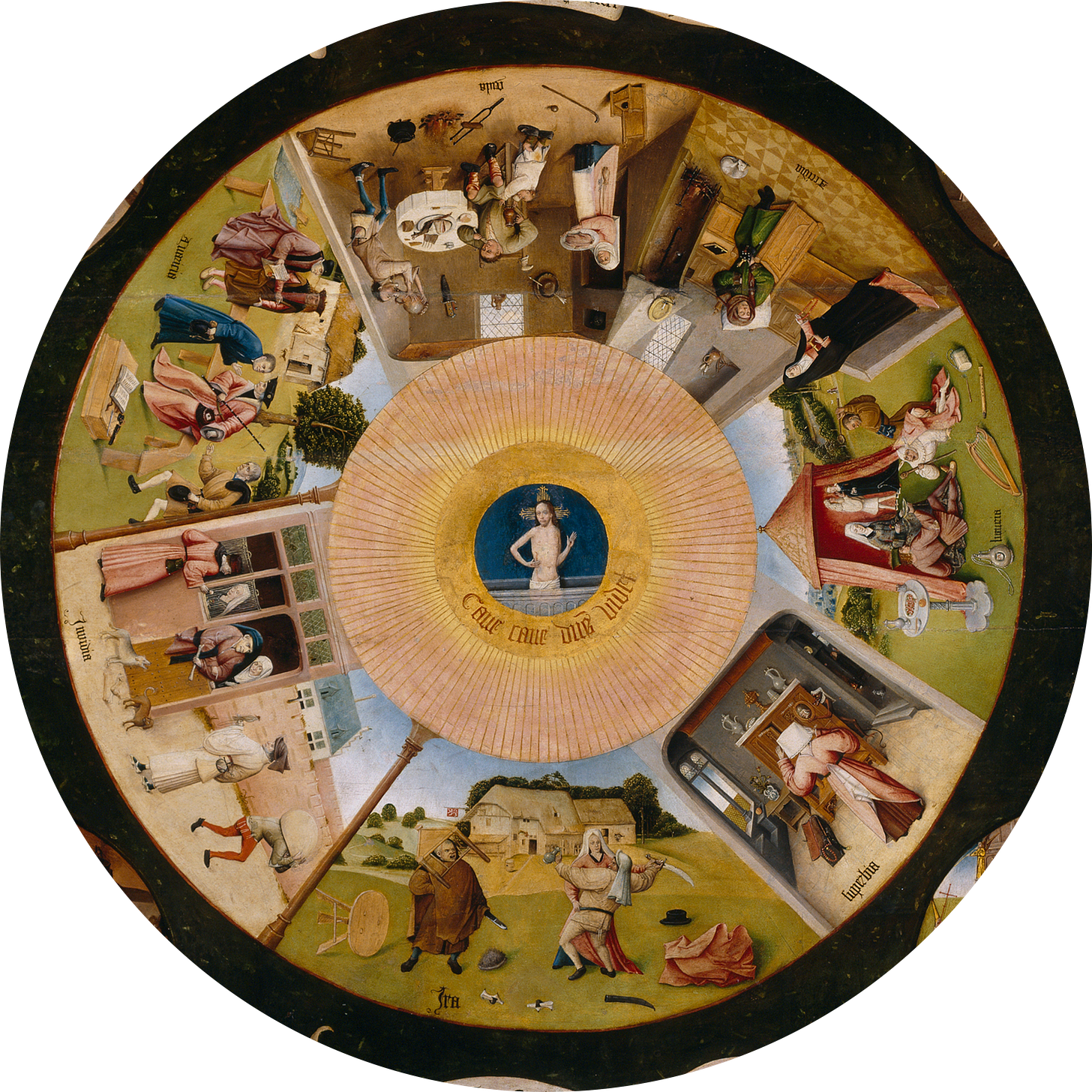


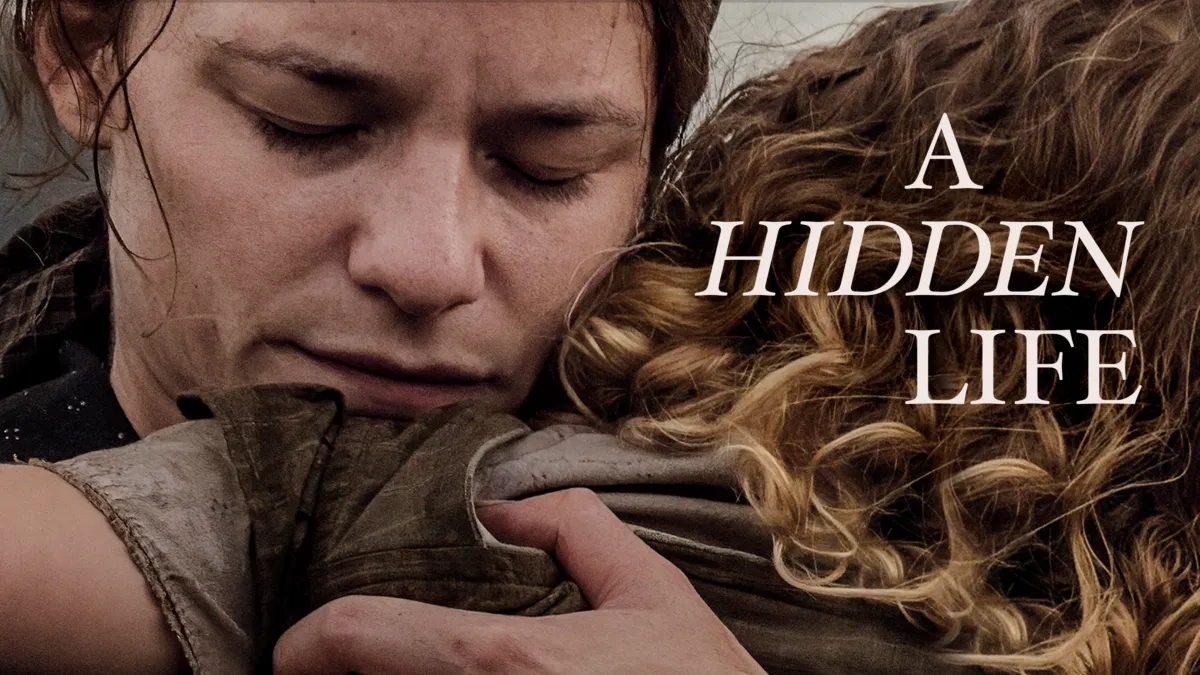

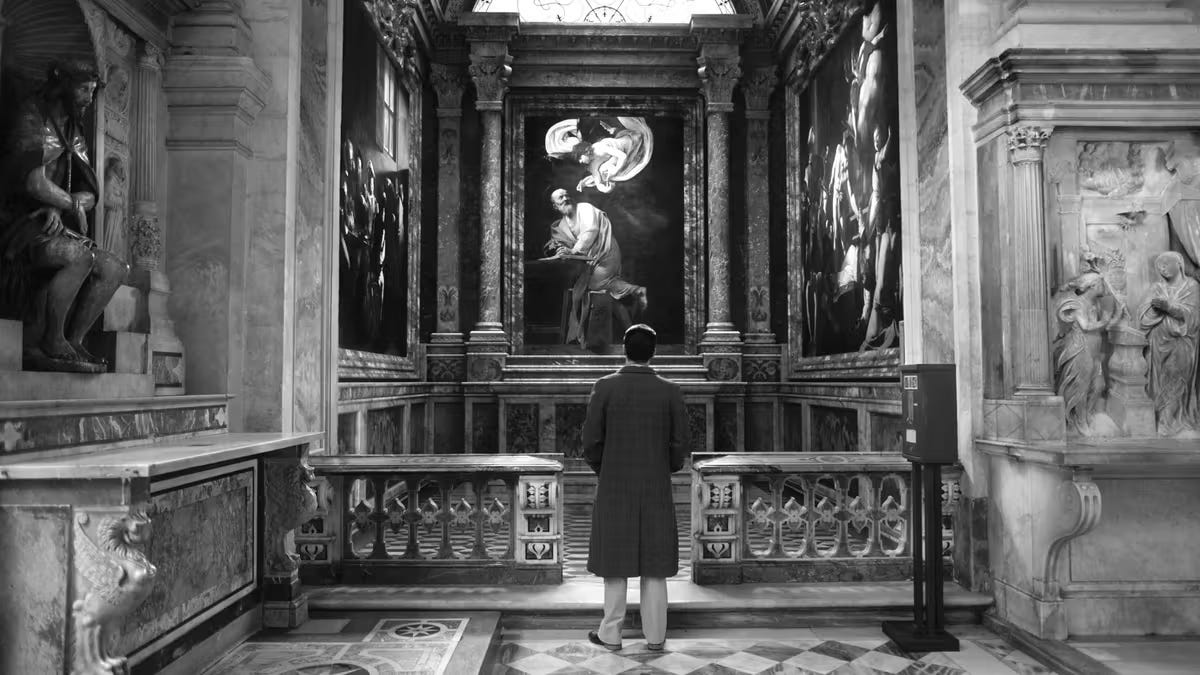






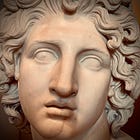

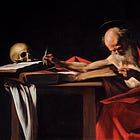


The Everyman copy just arrived. Let it begin!
What a great year! I am so honored to be a part of the team and to see what is in store for 2025 - lots of Dante! Of your recommendations this year, I really enjoyed the Umberto Eco film, John Cassian's How to Focus, and Seneca's Letters. I think the highlight though was being introduced to Pierre Hadot, I am enjoying his brilliant books on philosophy.